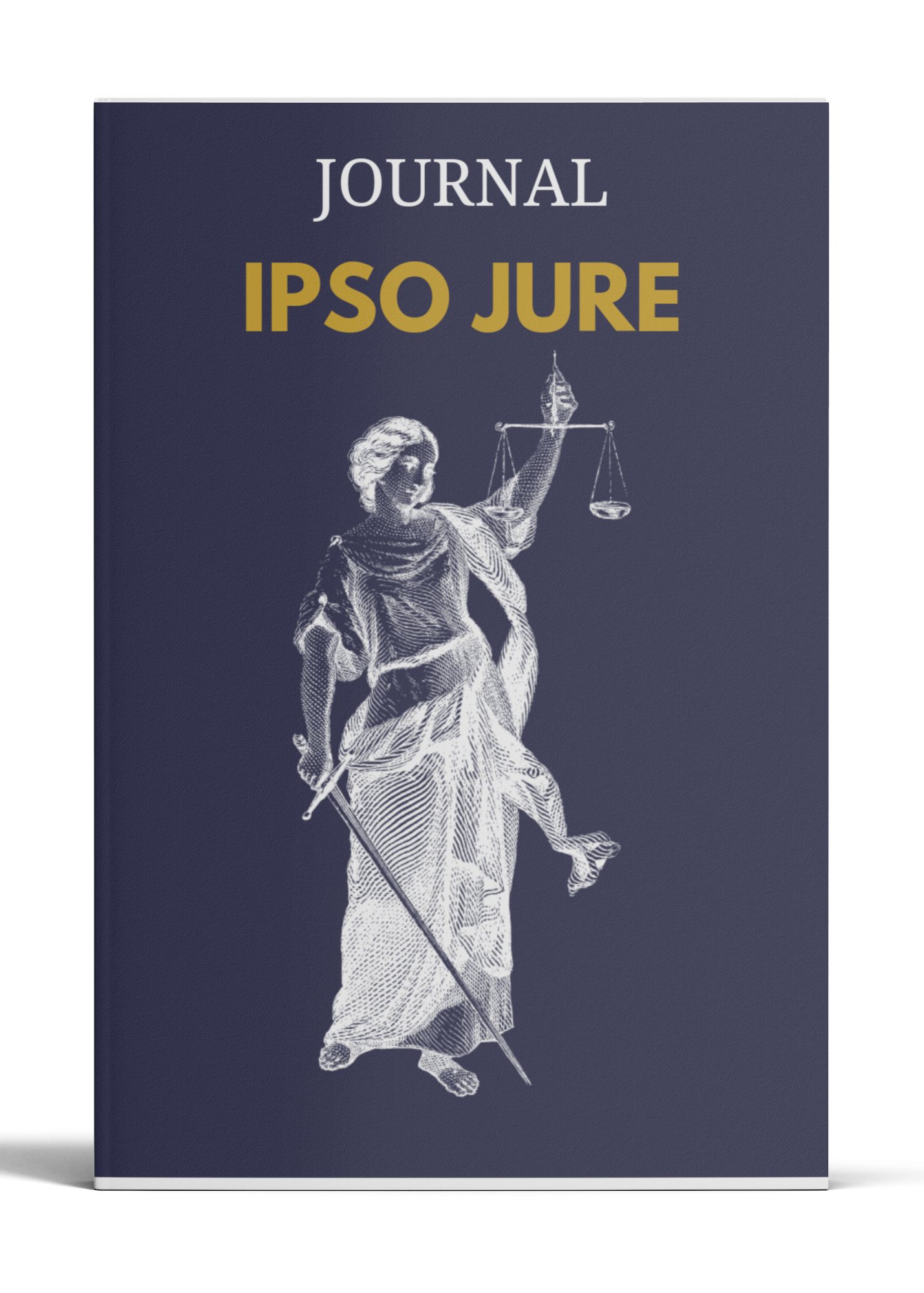Electric Vehicle Regulation: Navigating Legal Challenges in Sustainable Transportation Transformation
DOI:
https://doi.org/10.62872/54rge811Keywords:
Electric Vehicles, EV Regulation, Sustainable Transportation, Environmental Policy, Regulatory HarmonizationAbstract
The global adoption of electric vehicles (EVs) continues to increase in line with efforts to reduce carbon emissions and achieve sustainable transportation. The Indonesian government targets 2 million electric cars and 13 million two-wheeled electric vehicles by 2030, with various fiscal incentives and subsidies. However, EV adoption still faces major challenges, including high prices compared to conventional vehicles, limited charging infrastructure, and regulations that have not been fully integrated. The complexity of regulations, including the 38 Indonesian National Standards (SNI) that are still voluntary, hinders the acceleration of the EV industry. In addition, regulations related to battery waste management and carbon footprint in electric vehicle production still need to be strengthened. This study uses normative juridical methods with legislative, conceptual, and comparative legal approaches to analyze the effectiveness of EV regulations in Indonesia compared to other countries. The results of the study show the need for regulatory harmonization, the application of the Extended Producer Responsibility (EPR) principle for battery recycling, and the integration of environmental policies in EV development. With more structured policies and collaboration between the government, industry, and society, Indonesia can accelerate the adoption of electric vehicles effectively and sustainably, while reducing environmental impact and increasing the competitiveness of the national industry
Downloads
References
Adittya, A. P., & Terapan, M. E. (2024). Kebijakan Kendaraan Bermotor Listrik Berbasis Baterai (KBLBB) dalam Transisi Energi di Indonesia. Jurnal Analisis Kebijakan Ekonomi.
Anastasya, R., & Putri, S. B. (2024). SDGs 7: Efektivitas Program Penggunaan Bus Listrik Guna Mendorong Transportasi Publik Ramah Lingkungan. Journal of Environmental Economics and Sustainability, 1(3), 13-13.
Anugrah, D. F., Rishanty, A., Rahmawati, D., & Tjahjono, B. (2025). Navigating the path to a greener future: unravelling the challenges and prospects of electric vehicle adoption in Indonesia. Journal of Enterprise Information Management.
Berliandaldo, M., & Prasetio, A. (2022). Analisa dan Tinjauan Hukum atas Kebijakan Pengembangan dan Pemanfaatan Kendaraan Bermotor Listrik pada Sektor Pariwisata Indonesia. Sanskara Hukum Dan HAM, 1(02), 01-12.
Costa, C. M., Barbosa, J. C., Gonçalves, R., Castro, H., Del Campo, F. J., & Lanceros-Méndez, S. (2021). Recycling and environmental issues of lithium-ion batteries: Advances, challenges and opportunities. Energy Storage Materials, 37, 433-465.
Dimyati, A. F., Silvi Istiqomah, S. T., Wahyuni, A. E., Mubarok, Z., Umma, N. R., & Hilda, R. N. (2024). Baterai Kendaraan Listrik dalam Perspektif Sustainability. MEGA PRESS NUSANTARA.
Indonesia Electric Vehicle Consumer Survey 2023, http://pwc.com/id/en/publications/automotive/indonesia-electric-vehicle-consumer-survey-2023.pdf
Kusumaningtyas, A. N. (2024). UPAYA MITIGASI EMISI KARBON: SEBERAPA SERIUSKAH INDONESIA?. In Prosiding Seminar Sosial Politik, Bisnis, Akuntansi dan Teknik (Vol. 6, pp. 28-40).
Mahdavian, A., Shojaei, A., Mccormick, S., Papandreou, T., Eluru, N., & Oloufa, A. A. (2021). Drivers and barriers to implementation of connected, automated, shared, and electric vehicles: An agenda for future research. Ieee Access, 9, 22195-22213.
Mulyono, A. T. (2022). Dinamika Hukum Konservasi Alam sebagai Fenomena dalam Pembangunan Ibu Kota Negara. Majalah Hukum Nasional, 52(1), 1-25.
Nugroho, B., & Angela, D. (2024). Strategi NGO Lingkungan Greenpeace Indonesia Dalam Mendorong Transisi Energi Baru dan Terbaharukan (EBT) di Tengah Kontroversi Realisasi Net Zero Emission (NZE) 2060 di DKI Jakarta. Ganaya: Jurnal Ilmu Sosial Dan Humaniora, 7(3), 164-181.
Nugroho, B., & Angela, D. (2024). Strategi NGO Lingkungan Greenpeace Indonesia Dalam Mendorong Transisi Energi Baru dan Terbaharukan (EBT) di Tengah Kontroversi Realisasi Net Zero Emission (NZE) 2060 di DKI Jakarta. Ganaya: Jurnal Ilmu Sosial Dan Humaniora, 7(3), 164-181.
Nurnaningsih, N. (2024). Implementasi Kebijakan Elektronifikasi Bea Perolehan Hak Atas Tanah dan Bangunan (EBPHTB) pada Badan Pendapatan Daerah Kota Baubau. Administratio Jurnal Ilmiah Ilmu Administrasi Negara, 143-150.
Panjidinata, N. A. (2024). Analisis Dampak Kebijakan Pembangkit Listrik Tenaga Surya Atap Pln Terhadap Pengembangan Energi Terbarukan: Tantangan Dalam Harmonisasi Regulasi Investasi Energi Terbarukan. Commerce Law, 4(2), 488-506.
Panjidinata, N. A. (2024). Analisis Dampak Kebijakan Pembangkit Listrik Tenaga Surya Atap Pln Terhadap Pengembangan Energi Terbarukan: Tantangan Dalam Harmonisasi Regulasi Investasi Energi Terbarukan. Commerce Law, 4(2), 488-506.
Sidabutar, V. T. P. (2020). Kajian pengembangan kendaraan listrik di Indonesia: prospek dan hambatannya. Jurnal Paradigma Ekonomika, 15(1), 21-38.
Subiantoro, H., & Maharani, A. E. P. (2024). Analisis Perpres Nomor 55 tahun 2019 Terkait Program Kendaraan Listrik Dalam Rangka Mewujudkan Transportasi Ramah Lingkungan. Jurist-Diction, 7(1).
Tangkudung, A. G. (2024). Jejak Sejarah Mobil Listrik di Indonesia: Perkembangan dan Tantangan. Syntax Idea, 6(9), 6087-6096.
The Limits of Indonesia’s Legal Framework for Electromobility: Regulatory and Sustainable Issues
Tilly, N., Yigitcanlar, T., Degirmenci, K., & Paz, A. (2024). How sustainable is electric vehicle adoption? Insights from a PRISMA review. Sustainable Cities and Society, 105950.
Widjaya, D. (2023). Strategi Intervensi Pemerintah Daerah Dalam Pengelolaan Sampah di Kabupaten Bekasi Provinsi Jawa Barat (Doctoral dissertation, Sekolah Tinggi Ilmu Pemerintahan Abdi Negara).
Downloads
Published
Issue
Section
License
Copyright (c) 2025 Meutia Nadia Karunia, Muhammad Abi Berkah Nadi (Author)

This work is licensed under a Creative Commons Attribution-ShareAlike 4.0 International License.












